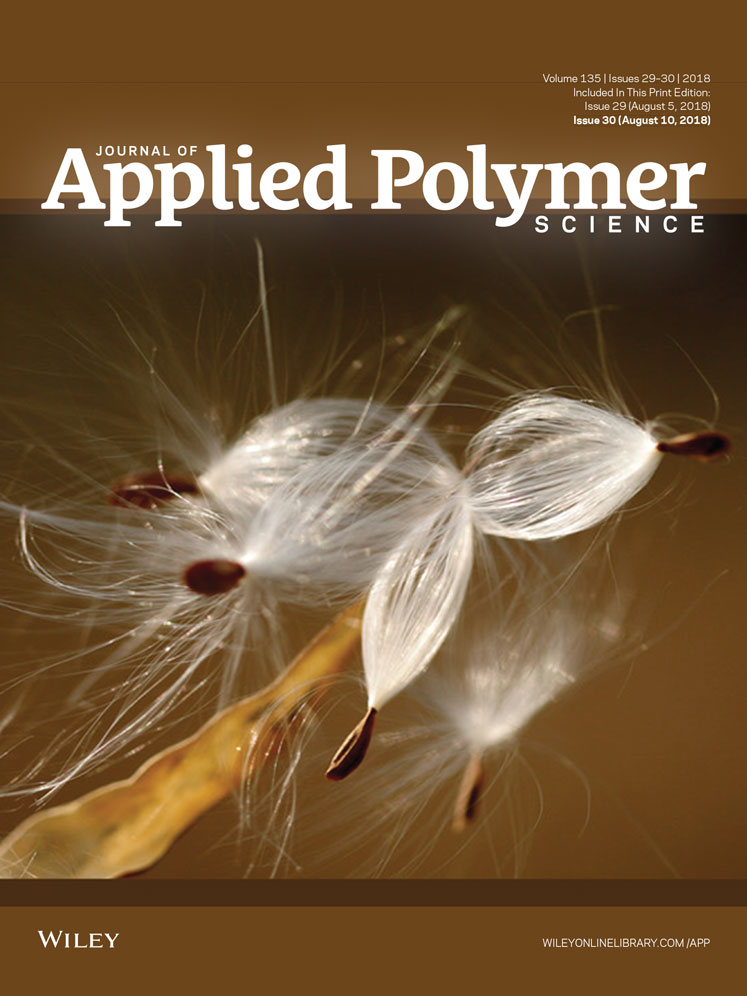Linear low-density polyethylene/poly(ethylene terephthalate) blends compatibilization prepared by an eccentric rotor extruder: A morphology, mechanical, thermal, and rheological study
ABSTRACT
In this study, various poly(ethylene terephthalate) (PET) and linear low-density polyethylene (LLDPE) with maleic anhydride-grafted LLDPE (LLDPE-g-MAH) compatibilizer were melt blended under an elongational flow. A novel extrusion device, eccentric rotor extruder (ERE), was developed to supply such flow during the process. Including morphology, mechanical properties, melting behavior, and rheological behavior were studied. The morphological study showed that the compatibility between LLDPE and PET was greatly improved with LLDPE loading up to 80 wt %. Mechanical tests indicated that LLDPE could toughen PET to some extent. Moreover, a comparison of samples prepared between ERE and conventional extruder was made and demonstrated the sample prepared by ERE can exhibit better mechanical properties. Differential scanning calorimetry results revealed that PET can promote the crystallinity of LLDPE. Rheological behavior indicated that the complex viscosity of the blends exhibited strong shear thinning phenomenon with increasing LLDPE content, particularly in high-frequency range blend with the LLDPE weight ratio of 80 wt % was more sensitivity to shear rate than neat LLDPE. The G′-G″ curves of the blends also revealed that the microstructure of the blends changed significantly with the addition of LLDPE which was consistent with the scanning electron micrographs that PET particles became smaller and distributed more uniform with increasing LLDPE content. Furthermore, the blends showed similar stress relaxation mechanism with adding LLDPE content from 60 to 100 wt %. © 2018 Wiley Periodicals, Inc. J. Appl. Polym. Sci. 2018, 135, 46489.




